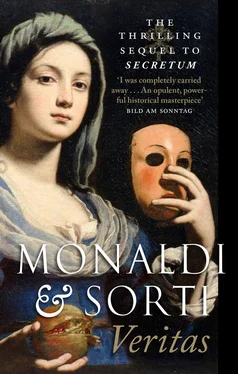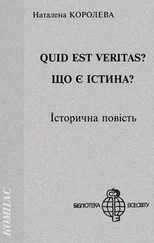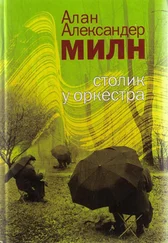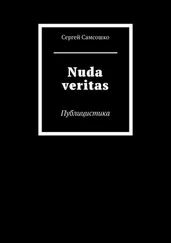Rita Monaldi - Veritas
Здесь есть возможность читать онлайн «Rita Monaldi - Veritas» весь текст электронной книги совершенно бесплатно (целиком полную версию без сокращений). В некоторых случаях можно слушать аудио, скачать через торрент в формате fb2 и присутствует краткое содержание. Жанр: Исторический детектив, на английском языке. Описание произведения, (предисловие) а так же отзывы посетителей доступны на портале библиотеки ЛибКат.
- Название:Veritas
- Автор:
- Жанр:
- Год:неизвестен
- ISBN:нет данных
- Рейтинг книги:3 / 5. Голосов: 1
-
Избранное:Добавить в избранное
- Отзывы:
-
Ваша оценка:
- 60
- 1
- 2
- 3
- 4
- 5
Veritas: краткое содержание, описание и аннотация
Предлагаем к чтению аннотацию, описание, краткое содержание или предисловие (зависит от того, что написал сам автор книги «Veritas»). Если вы не нашли необходимую информацию о книге — напишите в комментариях, мы постараемся отыскать её.
Veritas — читать онлайн бесплатно полную книгу (весь текст) целиком
Ниже представлен текст книги, разбитый по страницам. Система сохранения места последней прочитанной страницы, позволяет с удобством читать онлайн бесплатно книгу «Veritas», без необходимости каждый раз заново искать на чём Вы остановились. Поставьте закладку, и сможете в любой момент перейти на страницу, на которой закончили чтение.
Интервал:
Закладка:
There is no doubt that Eugene’s early years in France were unruly, unconducive to education and even dissolute. As the English historian Nicholas Henderson writes: “There can be no doubt of the existence of shadows in Eugen’s early boyhood. He belonged to a small, effeminate set that included such unabashed perverts as the young Abbé de Choisy, who was invariably dressed as a girl, except when he wore the lavish ear-rings and make-up of a mature woman.” (N. Henderson, Prince Eugen of Savoy , London 1964, p. 21). It was in those days, according to some letters of Louis XIV’s sister-in-law, Elizabeth of the Palatinate Countess of Orléans, that the homosexual adventures referred to by Atto Melani took place. Elizabeth had known Eugene personally from the days when he was still living in Paris. She recounts to her aunt, Princess Sophia of Hanover, that Eugene’s nickname was Madame Simone, as Abbot Melani recounts, or Madame l’Ancienne; that in his relations with his contemporaries the young Savoy “played the part of the woman”; that in his sexual revels he coupled with the Prince of Turenne; that the two were considered “two vulgar whores”; that Eugene would not have put himself out for a woman, preferring “a couple of fine page-boys”; that the ecclesiastic benefice he had sought was refused because of his “depravity”; that it was only in Germany that he may have forgotten “the art” he had learned in Paris.
Eugene’s most important biographer, Max Braubach, in his monumental five-volume account of the life and works of the great soldier, did not give much space to Elizabeth’s letters and their implications. Another historian, Helmut Oehler, reports her pungent remarks, but attributes them solely to Elizabeth’s personal resentment against Eugene: at the time they were written (1708-10), the Italian military commander was opposing the peace between the European powers and France, a peace that Elizabeth — given the dramatic situation in which Louis XIV found himself — hoped for ardently. In fact, this is not exactly true: Elizabeth wrote openly about Eugene’s homosexuality even years after the war had ended.
However, it is impossible to avoid the suspicion that it is Oehler who allows himself to get carried away; when he has to talk of another critic of Eugene, the Dutch Count Mérode-Westerloo, who left some vitriolic jottings on the condottiere , he changes register very markedly, defining Mérode-Westerloo a “know-all”, “charlatan”, “salon gossip”, “parasite”, and a “reprehensible individual” who “led a useless life”, and whose memoirs are little more than an instance of “senile dementia”. Finally Oehler explains that he deliberately ignored some passages by the Dutch diplomat because passing on Mérode-Westerloo’s “idiotic prattlings” is a “disgusting” task.
In the end it was only to be expected that the partisan historiography should have triumphed in Eugene’s case: a military hero can have no stain, least of all that of sexual inversion. The artificially created figure of the upright, irreproachable soldier triumphed — it is hardly a surprising — during the years of the Nazi regime; see, for example, the biography of Eugene by Viktor Bibl: Prinz Eugen. Ein Heldenleben , Vienna-Leipzig 1941, complete with a dedication to the army of the Third Reich.
The first of Elizabeth’s letters to accuse Eugene of homosexuality is reported in Wilhelm Ludwig Holland (ed.), Briefe der Herzogin Elisabeth Charlotte von Orléans , Stuttgart 1867, in Bibliothek des Litterarischen [sic] Vereins in Stuttgart , Band CXLIV, p. 316:
To Madame Louise, Countess of the Palatinate — Frankfurt
St Clou, 30 October 1720
[. .] I would not have recognised Prince Eugene in the portrait to be found here: he has a short wide nose, but in the engraving it is long and pointed. His nose is so turned up that his mouth was always open, and you could see his two upper central teeth entirely. I know him well, I often tormented him when he was a child. At the time they said that he would soon take vows, and he was dressed as an abbé. I assured him that he would not remain so, which turned out to be the case. When he abandoned the habit, the young people called him “Madame Simone” or “Madame l’Ancienne”, and it was said he played the part of the lady with them. So you see, dear Louise, that I know Prince Eugene well; I knew all his family, his father, his mother, brothers, sisters, uncles and aunts, he is not at all unknown to me, in short: it is impossible that he has a long pointed nose .
Another passage (letter from Elizabeth to her aunt on 9th June 1708) in Helmut Oehler, Prinz Eugen im Urteil Europas , Munich 1944, p. 108:
Prince Eugene is too sensible not to admire Your Highness. But since Your Highness wishes to know the real reason why Prince Eugene was called Madame Simone and Madame l’Ancienne, just as Prince Turenne was, it is because the two of them were called, if I may be allowed the term, two vulgar whores and it is said that they were so accustomed, and at every moment gave themselves à tout venant beau and played the role of the ladies; Prince Eugene may have unlearned this art in Germany .
From another letter in 1710 (Oehler, Prinz Eugen op. cit. , p. 109):
Eugene does not put himself out for women, a couple of fine pageboys would suit him better .
From another letter in 1712 (Oehler, ibid .):
[. .] If value and judgement make a hero, Prince Eugene is certainly one; however, other virtues are also required, whether one has them or not. When he was Madame Simone and Madame l’Ancienne, everyone looked on him as a petite salope, he also ardently desired a benefice of 2,000 talleri, which was refused because of his débauche. For this reason he went to the imperial court, where he made his fortune .
The other accounts that Atto gives of homosexuality at the court of France are all authentic too, as can be verified in Didier Godard, Le goût de Monsieur — L’homosexualité masculine au XVIIe siècle (Paris 2002), and in Claude Pasteur, Le beau vice, ou les homosexuels à la cour de France (Paris 1999).
The description of Eugene’s palace in Porta Coeli Street (today’s Himmelpfortgasse, where the Prince’s former residence now hosts the Austrian finance ministry) is also entirely accurate, including the position of the future library on the first floor: it was in those rooms that the Prince’s rich collection of books was started, which later became part of the imperial library and subsequently the National Library of Vienna.
Joseph the Victorious
The descriptions of the sieges of Landau led by Joseph and all the details relating to it, including the story of the coins that the French commander Melac ordered to be made from his silverware, are confirmed by G. Heuser, Die Belagerungen von Landau , Landau (2 vols.) 1894-96.
The procession that forced Penicek’s cart to slow down on the afternoon of the fourth day really happened. A leaflet on the death of Joseph I ( Umständliche Beschreibung von Weyland Ihrer Mayestät / JOSEPH / Dieses Namens des Ersten / Römischen Kayser / Auch zu Ungarn und Böheim Könih / u. Erz-Herzogen zu Oesterreich / u. u. Glorwürdigsten Angedenckens Ausgestandener Kranckheit / Höchst-seeligstem Ableiben / Und dann erfolgter Prächtigsten Leich-Begängnuß / zusammengetragen / und verlegt durch Johann Baptist Schönwetter , Vienna 1711, p. 6) provides the list of orders and confraternities that took part in the Forty Hours prayer. On 12th April, at that hour, shortly after five p.m., the Oratorian brothers were swarming towards St Stephen’s, along with the confraternity of the Immaculate Conception and the corporation of knife-makers; their turn for prayers was from six to seven p.m.
Читать дальшеИнтервал:
Закладка:
Похожие книги на «Veritas»
Представляем Вашему вниманию похожие книги на «Veritas» списком для выбора. Мы отобрали схожую по названию и смыслу литературу в надежде предоставить читателям больше вариантов отыскать новые, интересные, ещё непрочитанные произведения.
Обсуждение, отзывы о книге «Veritas» и просто собственные мнения читателей. Оставьте ваши комментарии, напишите, что Вы думаете о произведении, его смысле или главных героях. Укажите что конкретно понравилось, а что нет, и почему Вы так считаете.











